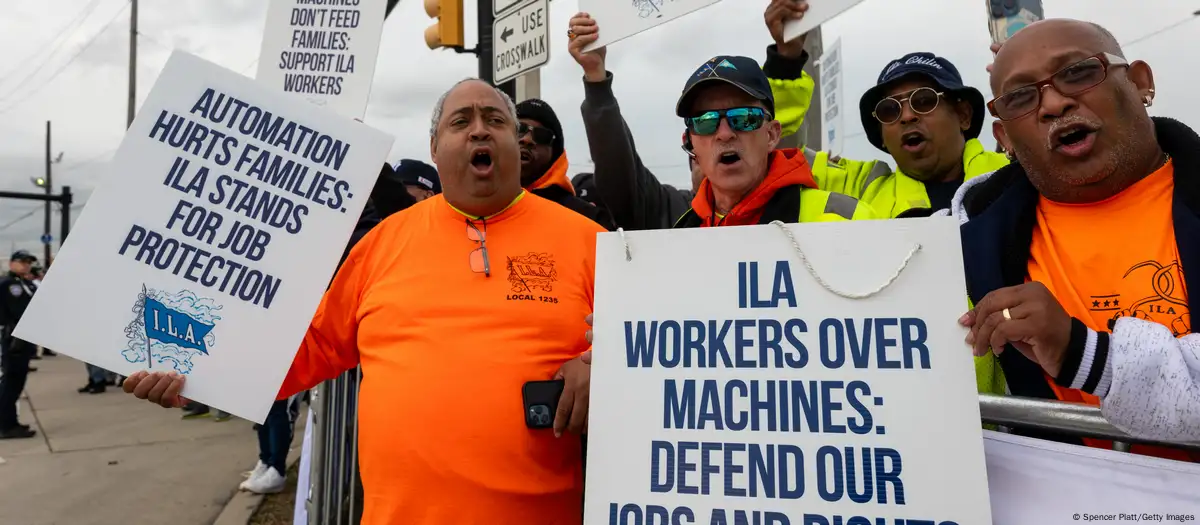The strike involving tens of thousands of workers paralyzed US ports along the East and Gulf Coasts. A lengthy strike, some warned, could become a major challenge for the US economy.
US dockworkers on Thursday called off their dayslong strike after their union and port operators had reached a “tentative agreement” on pay.
The International Longshoremen’s Association (ILA) had launched a work stoppage early Tuesday after talks with the United States Maritime Alliance (USMX), which represents shipping companies and terminal operators, came to an impasse.
The strike paralyzed US ports along the East and Gulf Coasts, including the ones in New York, Baltimore and Houston, which handle a range of containerized goods.
According to the ILA, some 45,000 workers took part in the labor action.
But Thursday evening, the two sides announced in a joint statement that they had agreed to a deal.

What are the terms of the deal?
The statement did not offer terms of the deal but two sources familiar with the matter told Reuters news agency that the agreement is for a wage hike of around 62% over six years.
That would raise average wages to about $63 (€57) an hour from $39 an hour over the life of the contract.
The ILA union had been seeking a 77% raise while the employer group USMX had previously raised its offer to a nearly 50% hike.
The union and the port operators also said that they would extend their master contract until January 15, 2025, to return to the bargaining table to negotiate all outstanding issues.
One of the key issues that remains unresolved is automation that workers say will lead to job losses.
Union boss Harold Daggett said previously that employers such as container ship operator Maersk and its APM Terminals North America had not agreed to demands to stop port automation projects that threaten jobs.
What did Biden say?
The strike was the first walkout by the dockworkers’ union since 1977.
President Joe Biden’s administration had repeatedly resisted calls to intervene and halt the strike, citing respect for collective bargaining rights.
Late Thursday, Biden celebrated the suspension of the strike.
“I want to thank the union workers, the carriers, and the port operators for acting patriotically to reopen our ports and ensure the availability of critical supplies for Hurricane Helene recovery and rebuilding,” Biden said in a statement.
“Collective bargaining works, and it is critical to building a stronger economy from the middle out and the bottom up.”
Some economists warned prolonged port closures could cost the US economy billions of dollars a day, threaten jobs and stoke inflation.
Industry groups have welcomed the tentative deal.
“The decision to end the current strike and allow the East and Gulf Coast ports to reopen is good news for the nation’s economy,” National Retail Federation said in a statement. “The sooner they reach a (final) deal, the better for all American families.”








